On September 12, 2024, the University of Regina rescinded space for two lectures that Frances Widdowson was going to give on October 3. Widdowson was going to speak on “Indigenization and Academic Freedom: Lessons From the #FrancesWiddowsonCase” and “The Grave Error at Kamloops: Should it be Described as a ‘Hoax’?”
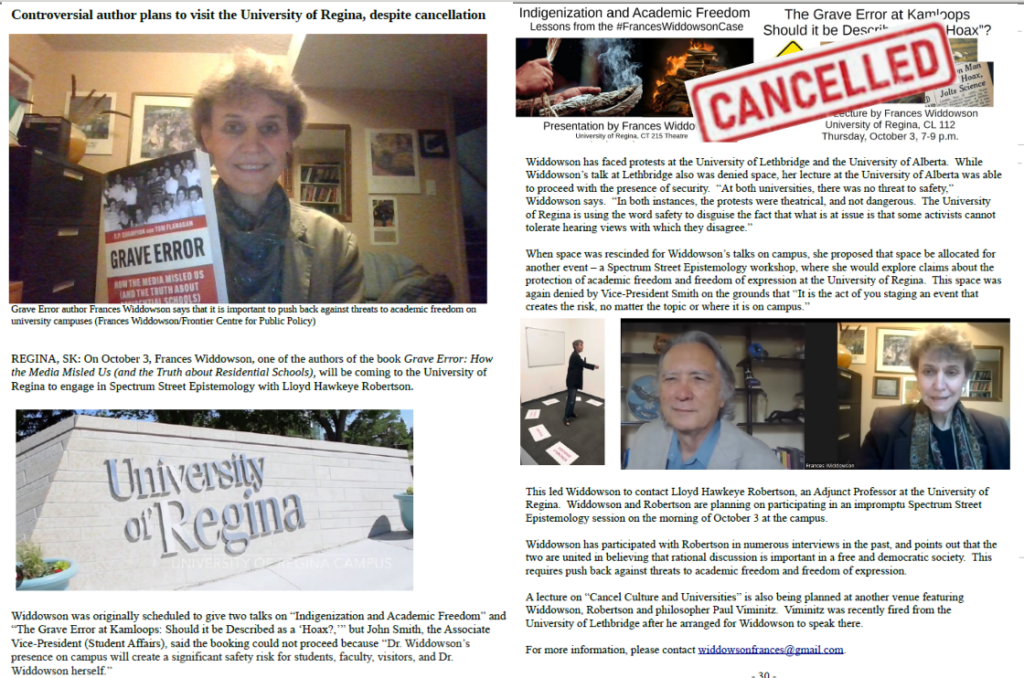
On September 4, the University of Regina confirmed space for Widdowson’s two lectures.
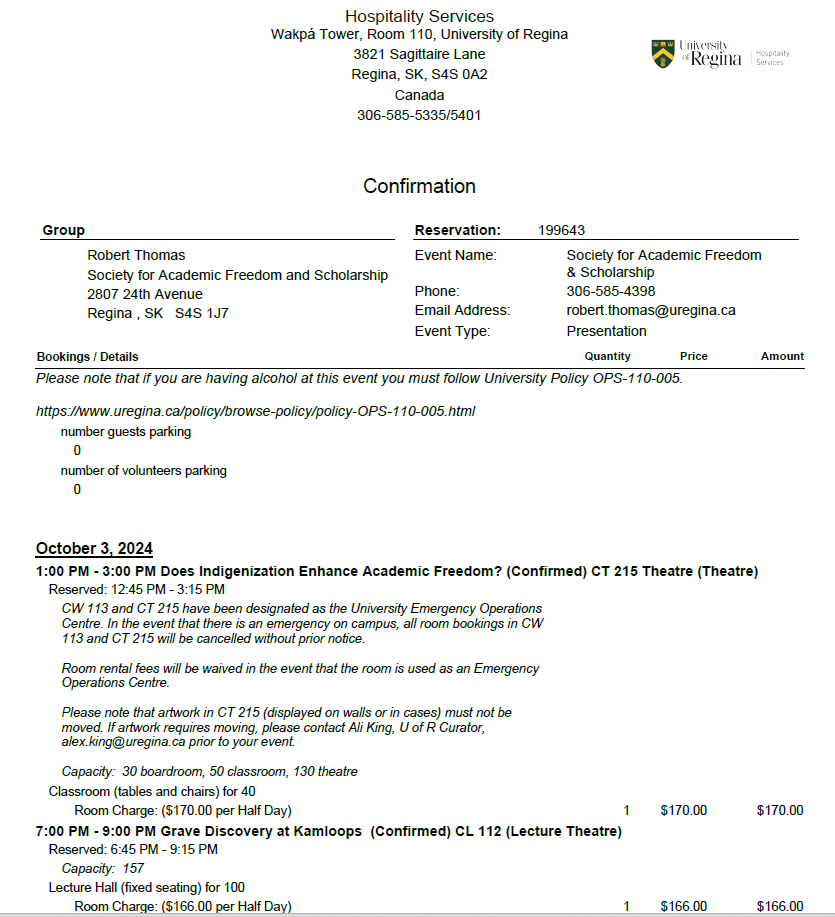
On September 12, 2024, John Smith, the Associate Vice-President (Student Affairs) sent an email to Robert Thomas, the President of the Society for Academic Freedom and Scholarship, rescinding the space.
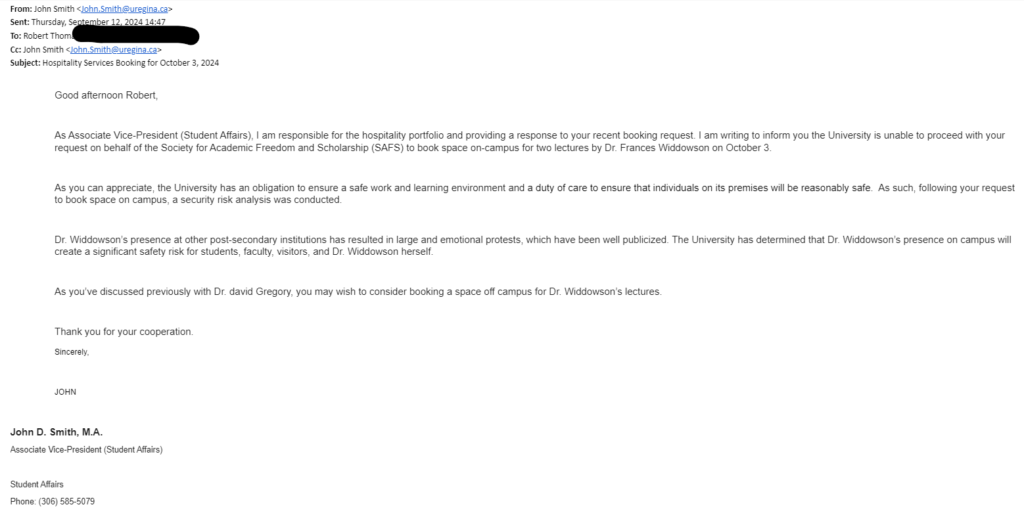
This led Frances Widdowson to send an email on September 18 to University of Regina President Jeff Keshen, who Widdowson work with at Mount Royal University (he was the Dean of Arts at MRU). Widdowson proposed doing a Spectrum Street Epistemology session instead of the two talks on indigenous issues.
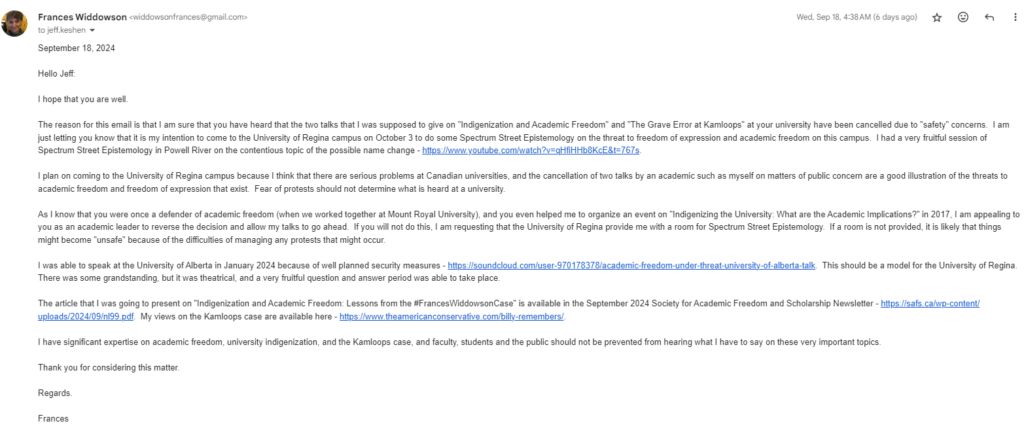
Widdowson followed up this email with another one that day.
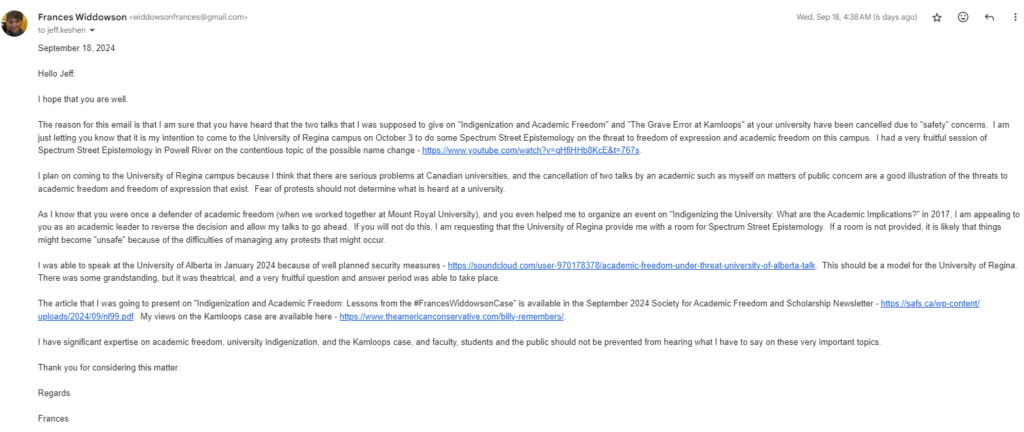
John Smith replied on September 19, saying that “For the same reasons as previously articulated with respect to Robert Thomas’ booking request, the University is not prepared to book you space on campus for an event. Any attempt by you to stage any sort of speaking event on University premises would create an unacceptable security and safety risk for students, faculty, employees and visitors to the University (as well as to you). We expect you to respect the University’s position and not proceed with an unauthorized event on our campus”.
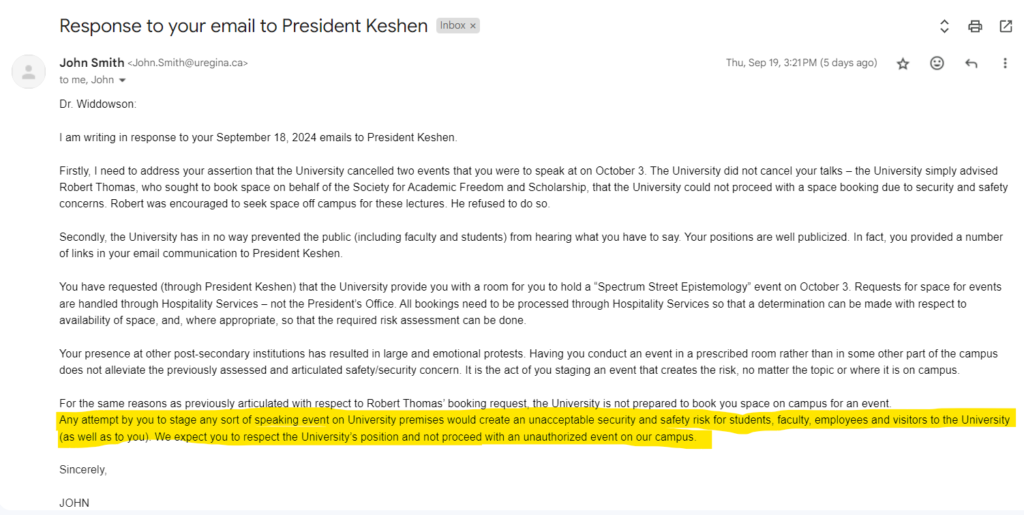
Two letters have been written to the University of Regina. The first on is by Daniel Page, a former computer science professor at the University of Regina.
The second is by Trevor Tomesh, also a former computer science professor at the University of Regina. He currently is a professor at the University of Wisconsin-River Falls.
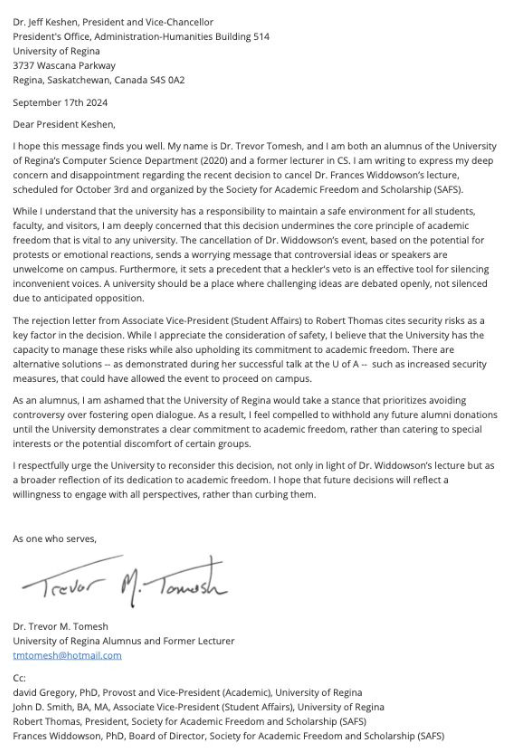

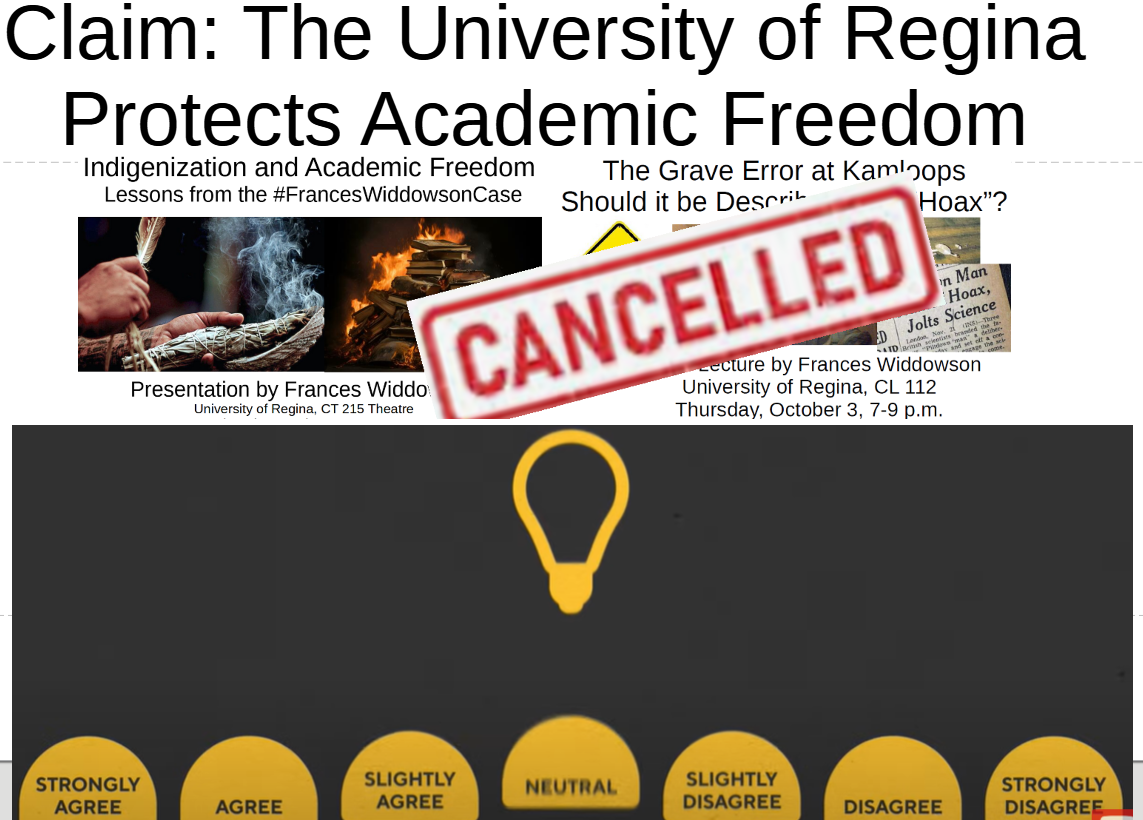
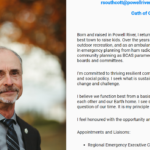
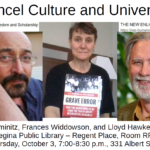
I cannot believe this is still happening. It is just shameful.
I’ve just sent the following letter to Jeff Keshen
Dear President Keshen,
You may be aware that I invited Dr. Widdowson to speak at the University of Alberta last year — an event that was eventually put on in January 2024. Dr. Widdowson gave a very good talk and the engagement from students, faculty and community members — some of whom came to protest but stayed to talk — was mutually respectful and rewarding.
Although I believe the University of Alberta handled the situation in a manner far superior to the approach taken by the University of Lethbridge the year prior, I also thought President Flanagan missed an opportunity to model how to handle campus speech controversies. The University of Alberta’s approach was security-heavy and undoubtedly expensive.
Going forward in Canadian higher education, it has to be possible for contentious intellectual discussions to happen on campus without involving police officers. Faculty and administrators must model to the student body how to make this possible. The University of Regina has a unique opportunity to model the following principles to the entire nation:
(1) If a faculty member or student group invites a speaker, we accept that this speaker is legitimately interesting — EVEN WHEN CONTROVERSIAL. Therefore, our default position is to facilitate such speaking events.
(2) Protest is also legitimate, and welcome. A university campus is a special kind of public space — we do not manage it the way a shopping mall is managed. Speaker invitations or current events may sometimes spur the organization of counter-events, or rallies with people holding signs, marching, temporary encampments, and so on. This is a normal and welcome part of university life.
(3) Everyone must understand and uphold the possibility of contention itself. This means no physical violence, no targeted harassment, no heckler’s veto, no quashing of speech and events by blockading entrances, noise, unplugging AV equipment or what have you. Incidents of this kind will be treated as grounds for suspension or expulsion of students, and suspended pay or dismissal in the case of university staff (including academic staff).
(4) We expect and we model that contentious speech has a place on campus. We expect and model that it should be perfectly possible for contentious subjects to be examined on campus without a police presence.
I hope you reconsider your institution’s refusal to allow a speaker invited to your campus to speak, and instead use this as an opportunity to model to all of Canada how to handle the occasion in a manner becoming a major public university.
Very best regards
Kathleen Lowrey
Associate Professor, Anthropology
University of Alberta